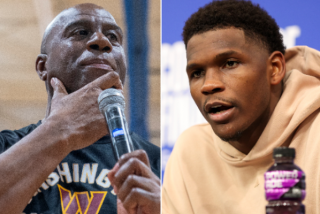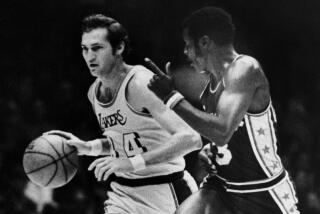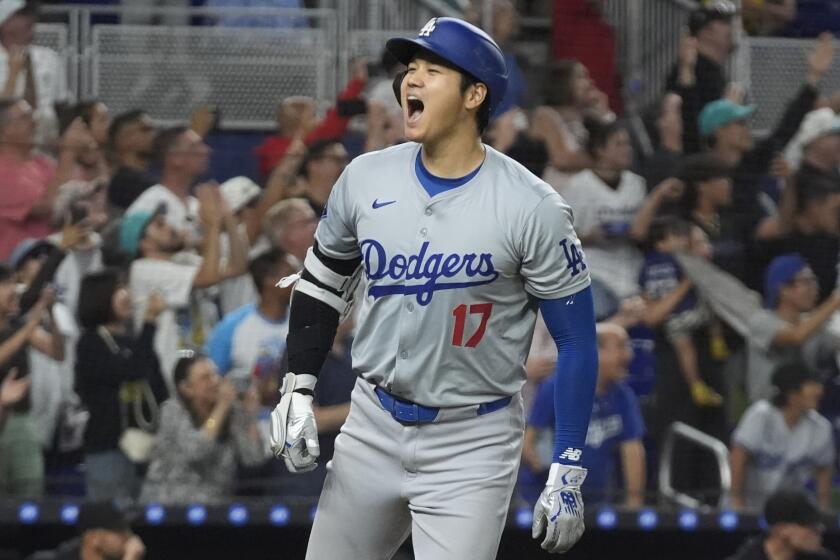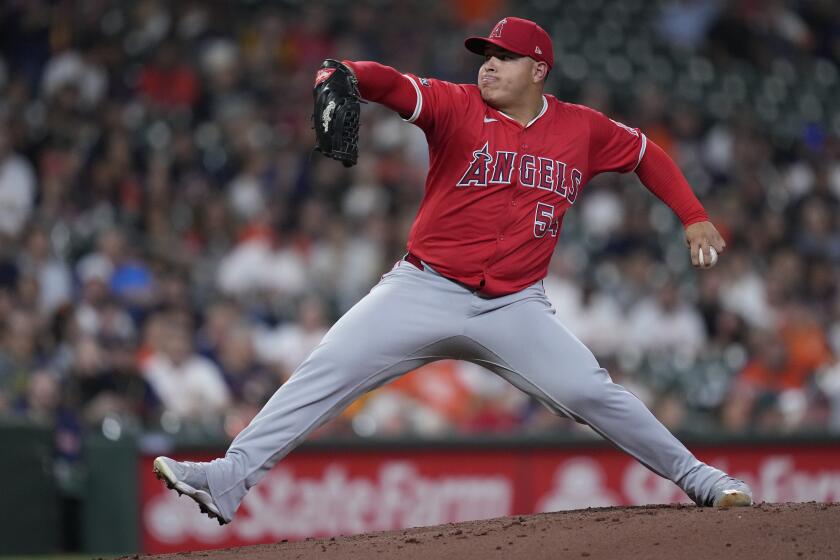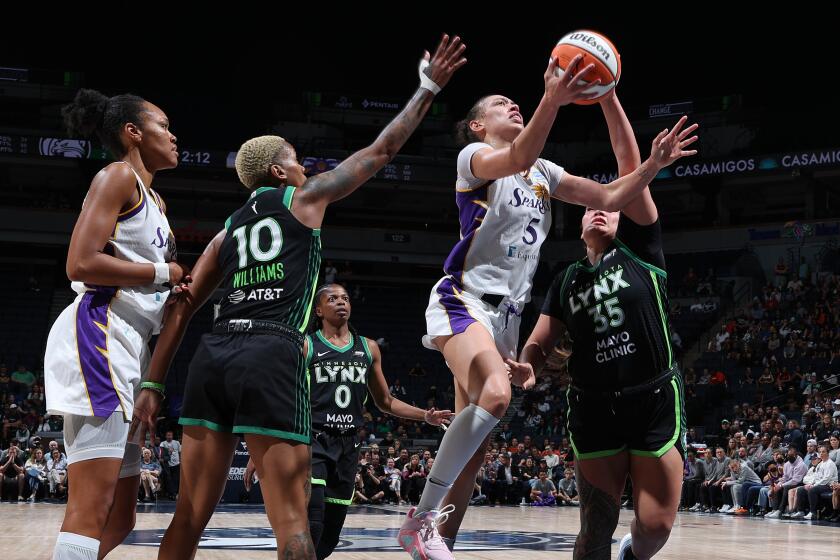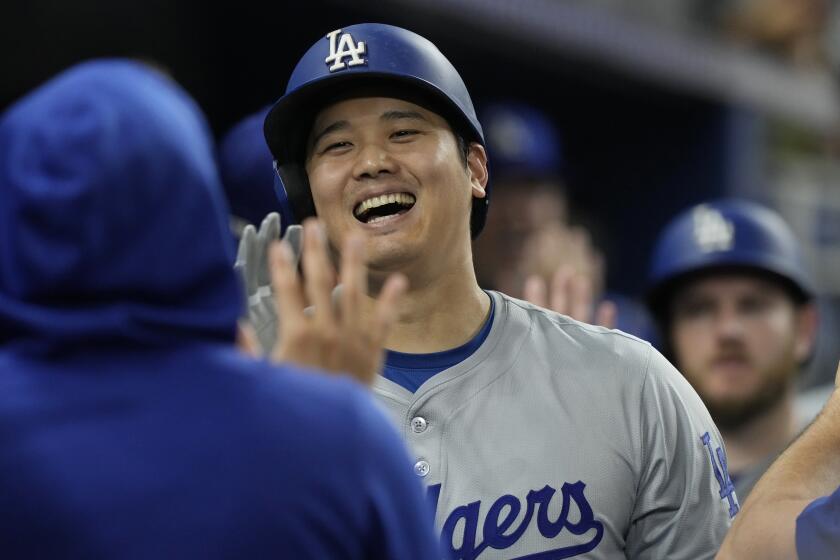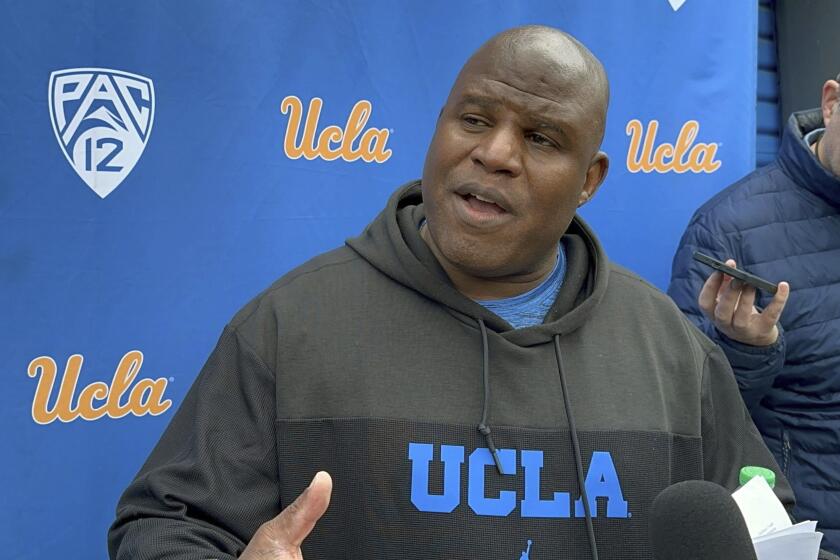Adrian Smith, the unlikeliest NBA All-Star MVP, could really shoot — and drive too
A Sunday drive in his vintage Ford Galaxie can’t help but remind Adrian Smith of the 1966 NBA All-Star game.
Smith, an unlikely star among stars, won the gas-guzzling convertible as the game’s most valuable player.
Forty-five years later, it’s still parked in his garage.
“I was going to take it out today,” Smith says from his home in Cincinnati, “but we’re expecting bad weather.”
The former guard, whose All-Star appearance in 1966 was his first and last in 11 pro seasons, still climbs behind the wheel for occasional freeway jaunts, gunning the powerful engine.
“It’ll pass everything,” he says, “except a gas station.”
Muscle-car enthusiasts may swoon, but Smith, through nearly half a century, has spurned all offers to sell.
“It’s like a trophy,” he says. “I can’t put a value on it.”
Smith, 74, may never part with the 345-horsepower keepsake from the greatest night of his NBA career.
A late addition to a 10-man East team that included eight future Hall of Famers, his Cincinnati Royals teammates Oscar Robertson and Jerry Lucas among them, Smith scored 24 points in 26 minutes to fuel a 137-94 rout of the West at Cincinnati Gardens.
“On that particular night,” Smith says, “I was the best player on the floor or they wouldn’t have given me that car.”
He speaks slowly and softly, as if he still can’t believe it.
“I was just thankful to be on the team,” he says.
Only eight years earlier, Smith had all but given up on an NBA career when the Royals told him he probably wouldn’t be able to cut it, sending him home to be drafted into the Army.
But Smith, nicknamed Odie after a rube comedian from a Grand Ole Opry skit, wasn’t easily discouraged.
He’d come from humble beginnings, the fifth of six children reared dirt poor on a farm in western Kentucky that had no electricity or indoor plumbing.
With no money to buy a basketball, he says his mother bound his father’s socks together so he could practice shooting. He nailed a makeshift rim to a tree but notes, “I never played no organized basketball until I went to high school.”
Even that wasn’t a given, Smith reluctant to commit until the school’s principal/basketball coach offered to drive him home from school after practice — a distance of seven miles.
“He came and got me out of study hall,” Smith notes, laughing, “and told me I was going to play ball.”
At 5 feet 11 and 135 pounds as a senior, Smith attracted only one scholarship offer, later rescinded when he hesitated in accepting. After growing to 6-1 and 170 at a junior college in Mississippi, he signed with Kentucky.
In 1957-58, Smith averaged 12.4 points for the so-called “Fiddlin’ Five,” helping to bring legendary Kentucky coach Adolph Rupp the last of his four NCAA championships.
That, however, impressed the Royals only enough to make him a 15th-round draft pick and give him a brief tryout.
In the Army, Smith was sent to San Francisco to play for the All-Army team, which led to his making the famous 1960 U.S. Olympic team, led by Robertson, Lucas and Jerry West.
Says West, describing his former teammate as a good friend, “He made a name for himself and a career for himself because of his ability to compete and because he played with players and coaches who understood what he could do best.”
What he did best was shoot.
At the Rome Olympics, where Team USA cruised to the gold medal by winning its eight games by an average of more than 42 points, Smith was the Americans’ fifth-leading scorer.
“I had to continue to prove to people that I could play,” Smith says, “but it seems like everything fell into place. I was a good player. I didn’t have the ability of an Oscar Robertson or a Jerry West, but I was a good player.”
His Olympic experience led to a second chance with the Royals.
In 10 NBA seasons with Cincinnati and the San Francisco Warriors — he played an 11th pro season with the Virginia Squires of the American Basketball Assn. — Smith averaged 11.8 points.
In his All-Star season, he averaged a career-high 18.4.
His first shot in the All-Star game, however, was an airball.
“I was so nervous,” he says.
He eventually settled down, making nine of 18 and all six of his free throws. He augmented his scoring with eight rebounds and three assists, happily winding up with a car as a prize.
“He was probably the most appreciative NBA All-Star MVP winner I’ve ever seen,” says West, a 14-time All-Star and the game’s MVP in 1972. “It was a great moment.”
Back then, Smith says, he used the car fairly regularly.
A few years later, he remembers, “I thought to myself, I’m never going to have a chance for something like this again, so I’m just going to hold on to it for my son.”
Adrian Tyler Smith, born six months to the day before his father won the car, has never taken ownership. An aspiring actor, he lives clear across the country in Southern California.
His father, a banker and ex-ballplayer, still lives in Ohio with wife Paula, “in the only house we’ve ever owned.”
That’s the one with his favorite car in the garage.
Says West, laughing, “I’m surprised he doesn’t sleep in it.”
More to Read
Go beyond the scoreboard
Get the latest on L.A.'s teams in the daily Sports Report newsletter.
You may occasionally receive promotional content from the Los Angeles Times.
